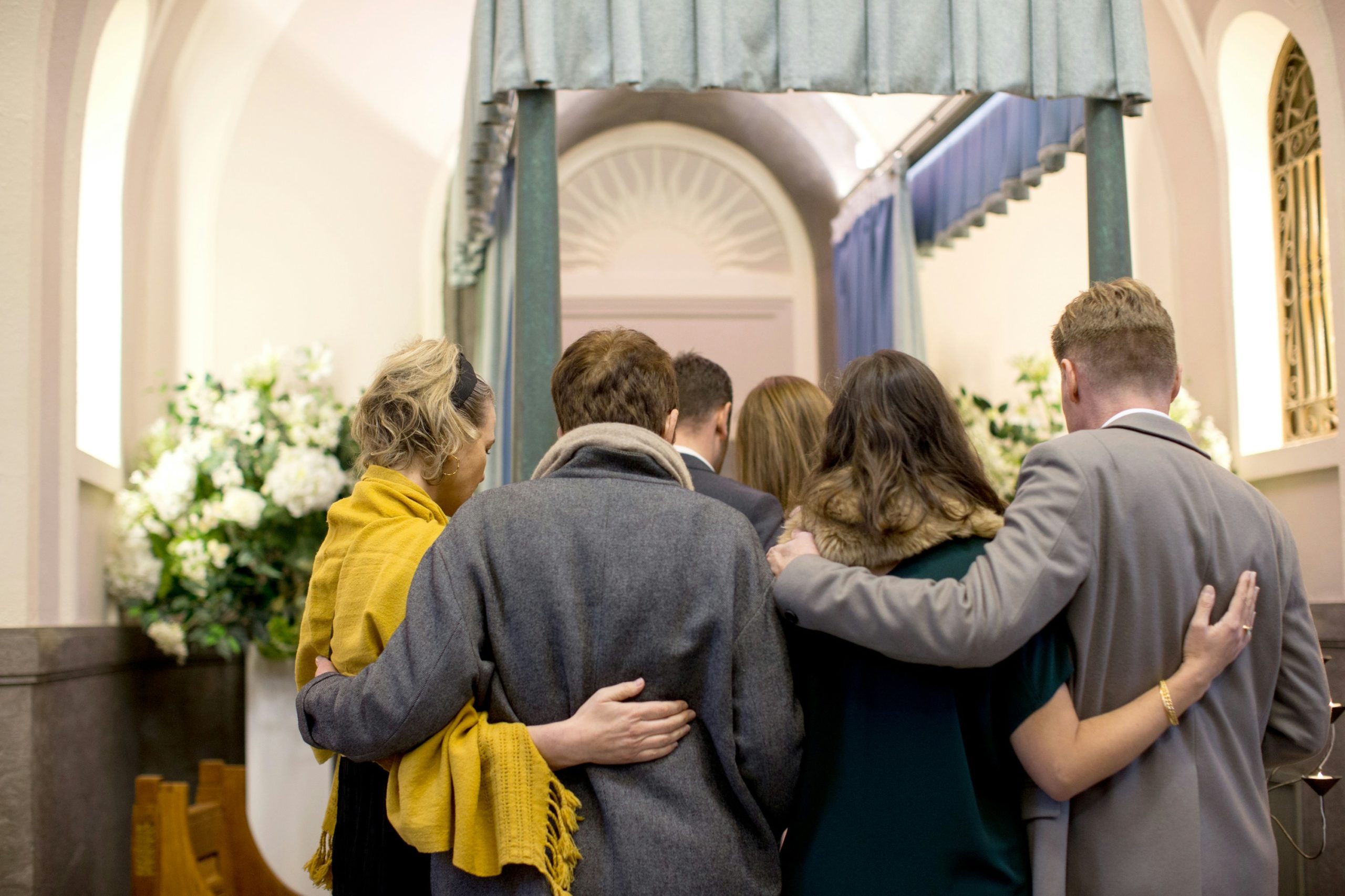Why Do People Have Funeral Rituals?
The world over people engage in funeral rituals. And it’s not just a modern phenomenon. The oldest examples of burials and associated rites potentially go back as much as 335,000 years, with the recent discovery of homo naledi burial sites and engravings in South African caves.
So why would even this small-brained hominin, initially believed to be incapable of complex emotional responses, do this?

It shows a couple of things. Despite their smaller brain capacity, compared to homo sapiens who came along hundreds of thousands of years later, homo naledi were capable of emotional thought.
And that burials and funeral rites are just as important to a small-brained chimpanzee-like creature as they are to modern humans.
But why?
The death of a loved one is emotionally painful. Funerals and their rituals form a huge part in confronting the loss and working through grief.
Rituals offer social support, solidarity and connection. It’s a chance to work through and share grief in a structured way.
Why Have We Developed Rituals?
Rituals have a positive psychological impact on grief.
Among the chaos of death, rituals provide a formalised and predictable series of actions to focus on. They make a grieving party feel in control and help manage that grief.
Often rituals are a way of connecting people, cultures and communities, providing extra support as everyone pays their respects and thinks about the life of the deceased.
Shared Mourning and Closure
Funerals bring family, friends, and community members together, creating a network of support.
Shared mourning helps those grieving feel less isolated in their grief. What’s more there’s unspoken communication in the symbolism that comes with performing a funeral ritual. And, whether you realise it or not, such rituals are a form of closure. Healing then begins and the harder challenges of accepting the reality of the loss begins. Support can have huge benefits when coming to terms with a death.
Many cultures and religions have specific rites and ceremonies to celebrate the life of the deceased. Naturally, such rituals vary widely depending on the cultural, religious, and personal beliefs about death and what happens after.
But they are universal in their purpose – to help people come to terms with death, to celebrate the life of the deceased and to move through the grieving process. Remembrance goes beyond death. And as a result, many people express their wishes on their death through their will or when they take out a funeral plan.
Funeral Rituals Around the World
Christian Funerals
Typically held in a church, the service includes prayers, hymns, scripture readings and a eulogy. The deceased is either buried or cremated after the service. A viewing or wake might also be held before the funeral service, allowing family and friends to visit the body to pay their respects and say goodbye.
Jewish Funerals
The Chevra Kadisha (holy society) holds a ritual washing and purification of the body called Tahara, before burial. The Jewish faith also includes a seven-day mourning period called Shiva, where the immediate family stays at home, receiving visitors and saying prayers. Shiva is a structured time for grieving and community support.
Islamic Funerals
A communal funeral prayer Janazah is held at the mosque or graveyard, followed by the prompt burial of the body.
The body is wrapped in a simple white shroud and placed directly in the grave without a coffin, facing Mecca. After the burial, prayers are recited, and the community offers condolences.
Hindu Funerals
Here, the body is typically cremated on a funeral pyre, with the eldest son or a close male relative lighting the pyre. Hindus believe this releases the soul for its journey to the afterlife. In India ashes are often immersed in a holy river, such as the Ganges, as a final ritual to honour the deceased and ensure their spiritual liberation.
Buddhist Funerals
Monks and family members chant sutras and meditate to help the deceased’s soul in its journey toward reincarnation or enlightenment. Food, incense, and symbolic items are offered at the altar to honour the deceased and help them gain merit for their next life.
Tibetan Buddhism
The Tibetan sky burial is well-documented. The body is left on a mountaintop to be consumed by vultures, symbolising the body’s return to nature and the fleeting nature of life.
Mexican Funerals
Mexico’s Día de los Muertos (Day of the Dead) celebration honours deceased loved ones with altars (ofrendas) decorated with photos, flowers, favourite foods and personal items. Believed to guide the spirits back to the living world during the celebration, marigolds are used to decorate graves and altars.
Ghanaian Funerals
Ghanaian fantasy coffins are elaborate, custom-made coffins shaped like objects that represent the deceased’s life, interests, or profession. As part of the rituals, the mourners might pour a drink as an offering to the ancestors, asking for their guidance and blessings.
Celebration of Life or Memorial
A more informal gathering focused on celebrating the deceased’s life, often with music, stories, and personal tributes rather than religious rituals. Held without the body present, these services can symbolic acts like planting a tree in memory of the deceased.